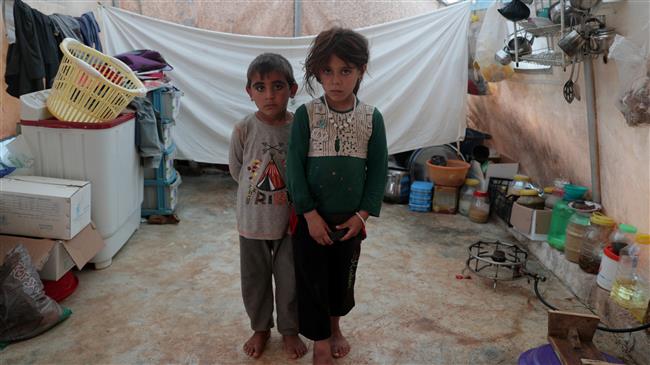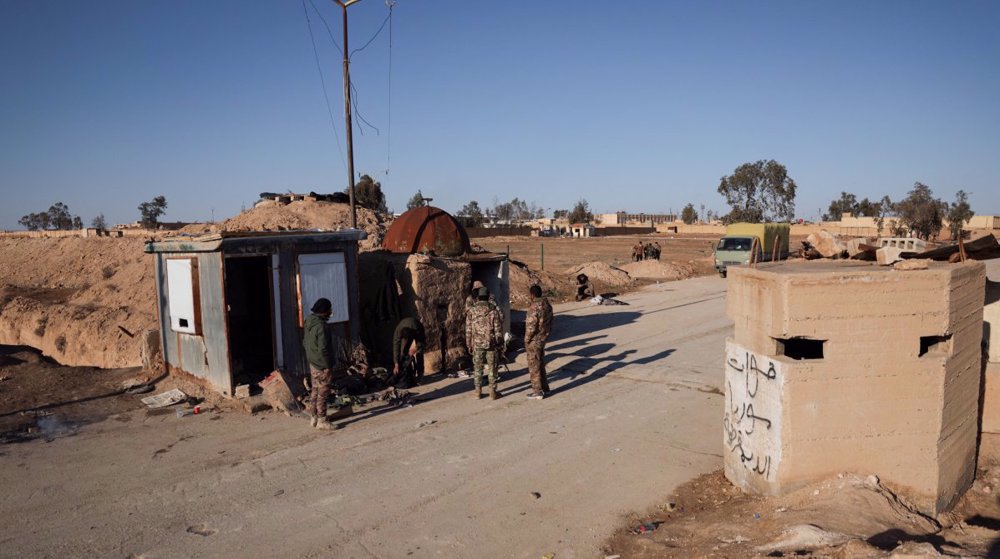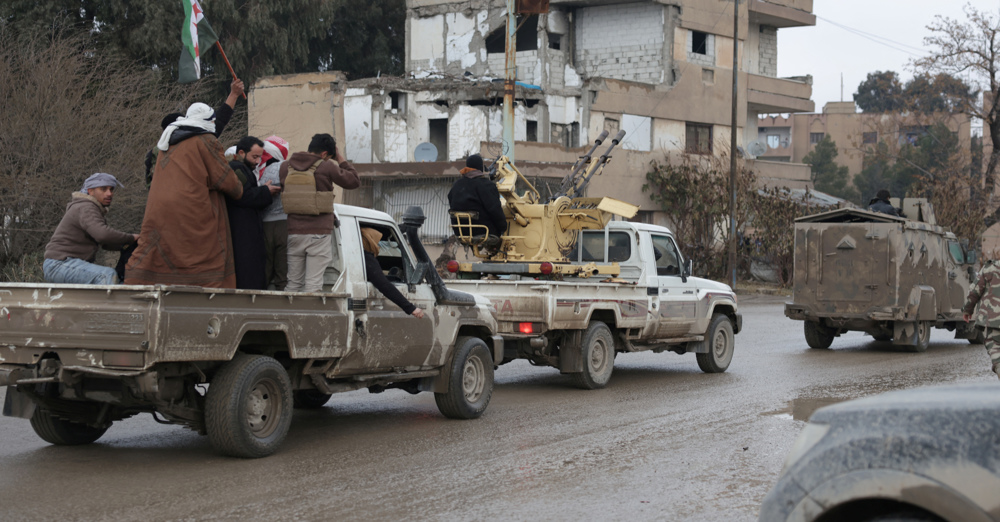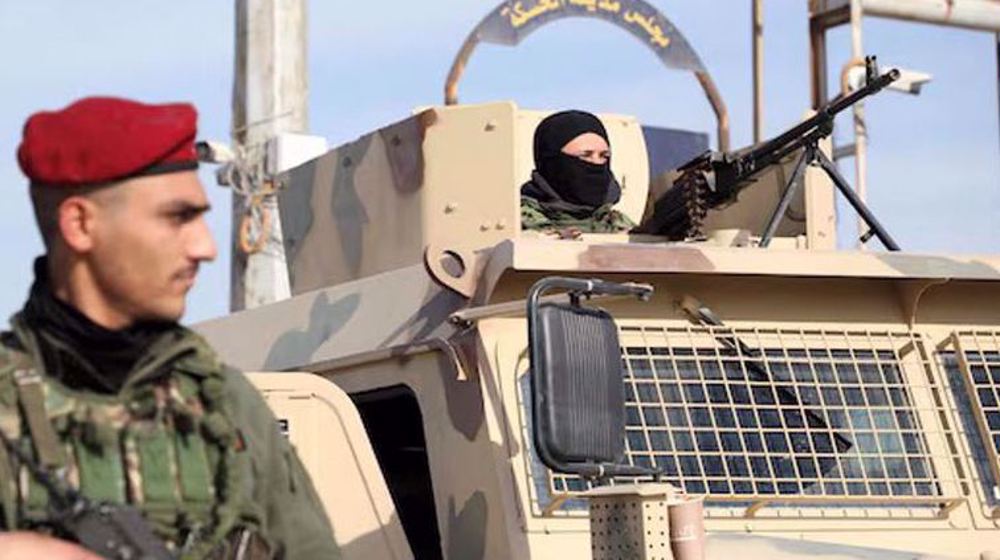Russian UN envoy slams exploitation of aid delivery mechanism for Syria
Russia’s Permanent Representative to the United Nations Vassily Nebenzia has condemned the exploitation of a cross-border mechanism for aid deliveries to Syria by some members of the UN Security Council, and their disregard for the sovereignty and territorial integrity of the war-ravaged Arab country.
“Terrorist organizations positioned in Idlib use the humanitarian aid as a tool to exert pressure on civilian residents, and gain advantages. There is direct and indirect evidence for that,” Syria’s official news agency SANA quoted Nebenzia as saying in a Monday statement carried by Russian RIA Novosti news agency.
He added, “Moreover, some foreign parties exploit the mechanism of the cross-border aid deliveries to Syria in a way that threatens secession of a number of areas from the rest of the country.”
Earlier in the day, Russian Deputy Foreign Minister, Sergey Vershinin, had denounced politicization of aid deliveries to Syria, emphasizing that any humanitarian assistance to the country must be coordinated with the Damascus government.
The United Nations Security Council has approved aid deliveries to Syria from Turkey, but only after accepting a Russian call to close one of the two access points into the war-torn country.
The 15-member council had also been split on whether to renew authorization for six months or one year.
Following a week of division and seven ballots, the UNSC on Saturday passed a proposal submitted by Germany and Belgium allowing the use of the Bab al-Hawa crossing point for one year.
“Russia is consistently in favor of humanitarian deliveries to Syria with full respect of the country’s sovereignty and territorial integrity and with coordination of its legal government. This issue should not be politicized,” deputy Russian UN envoy Dmitry Polyanskiy said after the vote.
China's UN Ambassador Zhang Jun said Beijing always had reservations about the delivery of cross-border aid, but given the current situation in Syria, it does not object to retaining it “at this stage.”
Moscow and Beijing argue that the mechanism violates Syria's sovereignty and that aid should be channeled through the government of President Bashar al-Assad.
Concerns have also grown over Western efforts, which are made under the guise of humanitarian assistance, to support Takfiri terrorist groups that have been suffering heavy defeats against Syrian government forces.
US forces bring reinforcement into northeastern Syria
Separately, US forces brought in military reinforcements from neighboring Iraq into Geweran neighborhood in Syria’s northeastern province of Hasakah, SANA reported on Monday.
Two truckloads of military equipment and logistical gear, accompanied by vehicles equipped with radar systems and jamming devices, entered the Syrian territories and headed to the provincial capital city of Hasakah.
The development took place only a few days after members of the Kurdish-led and so-called Syrian Democratic Forces occupied a number of government buildings in the neighborhood.
Since late October 2019, the United States has been redeploying troops to the oil fields controlled by Kurdish forces in eastern Syria, in a reversal of President Donald Trump’s earlier order to withdraw all troops there.
The Pentagon alleges that the move aims to “protect” the fields and facilities from possible attacks by Daesh, ignoring the fact that Trump had earlier suggested that Washington sought economic interests in controlling the oil fields.
Syria, which has not authorized the presence of the US military in its territory, says Washington is “plundering” the country’s oil.
The presence of US forces in eastern Syria has particularly irked the civilians, and local residents have on several occasions stopped American military convoys entering the region.
Syrians rally against new US sanctions under Caesar Act
Meanwhile, dozens of people in al-Rashwaniyeh village, which lies in the Qamishli district of Hasakah province, have staged a rally to demand the immediate withdrawal of US and Turkish military forces from their area, and condemn new US economic sanctions against Syria under the so-called Caesar Act. The protesters burnt US flags as well.

“We in the village of al-Rashwaniyeh stand with our brothers in other villages of the Qamishli countryside to demand the expulsion of American invaders, who attacks the locals,” a citizen identified as Abdel Hamid Sinjar told SANA.

Hamdiya Mohammad Hasoud, another local resident, said she was participating in the rally with other fellow villagers to reiterate rejection of the presence of US and Turkish forces and to demand their immediate departure from their regions.
Ex-Israeli war minister: Iranian missiles inflicted heavy losses
Trump launches 'Board of Peace' seen as bid to control Gaza
Senior general vows swift response to any aggression on Iran
US federal immigration agents detain 5-year-old boy in Minnesota
Trump used presidency to pocket $1.4 billion in first year back in office: Report
EU divided over new Iran sanctions
China hits US with economic counteroffensive after Maduro’s abduction: Report
Ben-Gvir arms more Israeli settlers amid rising violence in West Bank














 This makes it easy to access the Press TV website
This makes it easy to access the Press TV website